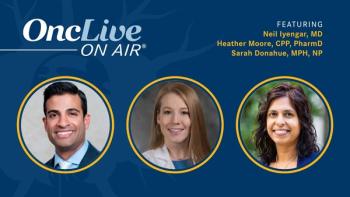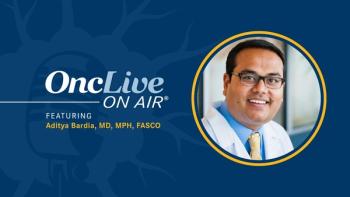
Potential in the MONALEESA-7 and MONALEESA-3 Trials
Transcript:
Debu Tripathy, MD: The MONALEESA-7 trial is unique in the sense that it is really looking specifically at premenopausal and perimenopause patients. We have always, for many of these biological therapies, tested them in the postmenopausal setting, so we know very little about premenopausal patients. Now, in order not to take a huge leap, we still are using ovarian suppression in the premenopausal and perimenopause patients in MONALEESA-7, but we are testing it now with a broader array of endocrine partners, so that’s the other difference. Patients can either take tamoxifen or an aromatase inhibitor. Now, if they recently had progressed on tamoxifen in the adjuvant setting, then they wouldn’t need to have been on an aromatase inhibitor and vice versa. But this trial is going to give us a large body of data specifically on premenopausal and postmenopausal patients with enough statistical power to actually be able to answer the question, “Is it as effective?” and also will give us some insights into the different endocrine therapy partners. Many times you may have patients who just cannot tolerate an aromatase inhibitor, and now we will actually have some data with tamoxifen.
So, now we have CDK inhibitors in all lines of therapy. There are still some missing pieces of the puzzle we need to sort out. So, the MONALEESA-3 trial is looking at second-line therapy with fulvestrant—so fulvestrant plus or minus ribociclib. And we expect results from that soon. The landscape now will be complete for us to be able to look at comparisons and contrasts between these agents and other things that we discussed earlier, such as the logistics. And keep in mind that these trials are still very young in terms of their follow-up, so we will continue to get further reports that look at survival, that look at long-term effects. We’ll get to see if there’s a group of patients who are maintaining really, really long disease-free survivals. And one thing we’ve already marked as physicians is that our patients are just going a really, really long time without having progression. There are patients 3 to 4 years now who were on the clinical trials because palbociclib was only approved 2 years ago. And so, we’re seeing these very long remissions. We’ll learn more about what identifies the potentially sensitive versus potentially resistant versus the super sensitive patient who may be on for years and years.
Transcript Edited for Clarity


































